Suunto 7 Altitude Issues
-
@eurohiker no they don’t. The only interaction they have is that the GPS can also be used to compute elevation. If the GPS elevation error is low and the value from the altimeter and the value from GPS have diverged, the GPS elevation is used to calibrate the barometric altimeter, in some way known to Suunto.
-
@eurohiker
I’m not so sure… why would a baro watch want to rely on a saved map? you stated it already, when you hike along a steep mountain, the worst thing you can have is altitude from map, based on your track… it could be hundreds of meters wrong -
@isazi mhmm what are the odds that 4 watches have had faulty gps and baro units. I thought it was a combination thing.
-
@freeheeler instead i get 2x (good gps) -3x (best gps) the altitude difference on EVERY hike on 4 watches. I would rather the few 100m wrong tbh
-
@eurohiker
that’s very difficult for us to find out. but as many others said, they don’t have an issue with their watches and my wife’s S7 works pretty well, too… ok it has some hickups every now and then… but who doesn’t. even my watch once hung itself in the middle of a bike ride
-
@eurohiker
all these spikes look suspicious…
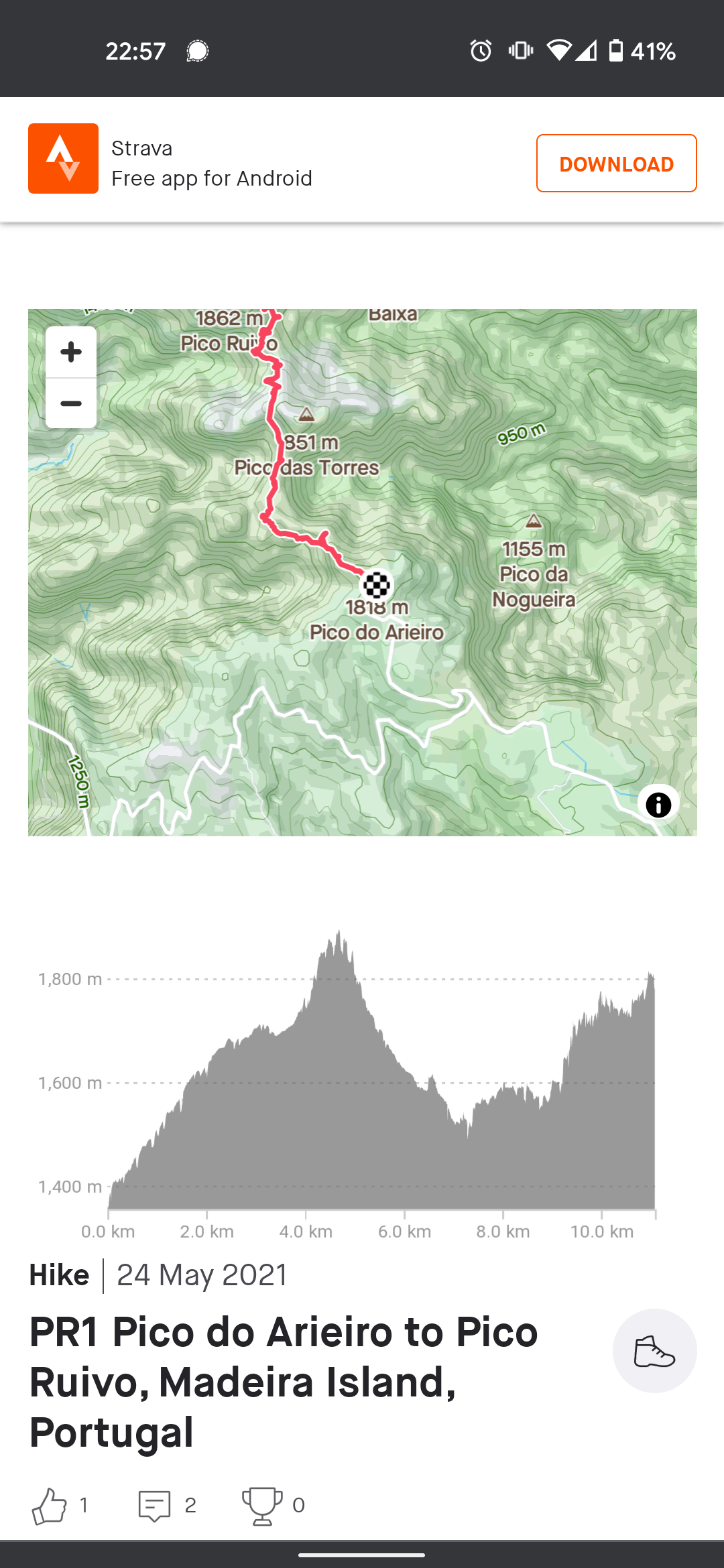
-
@freeheeler look at my profile…
It;s hard to say i’ve had 50+ suspicious activities in a few months when I really want the thing to work. I wear the thing religiously and now want it to help me track my training for my first tri. Not sure what is suspicious.
https://www.strava.com/athletes/41572177 <-- note weekends will be the hikes don’t bother to look at the bikes/runs. Klimat is also there for the weather (wind)
Don’t know if I can share my whole quantified-self.io profile. -
@eurohiker
I picked the first example that jumped at me… June 2nd… those ups and downs are most likely due to a covered sensor hole. could be covered by anything, even a drop of sweat.
the track itself looks pretty good.
it would be even better to see your QS data. I was not able to view it
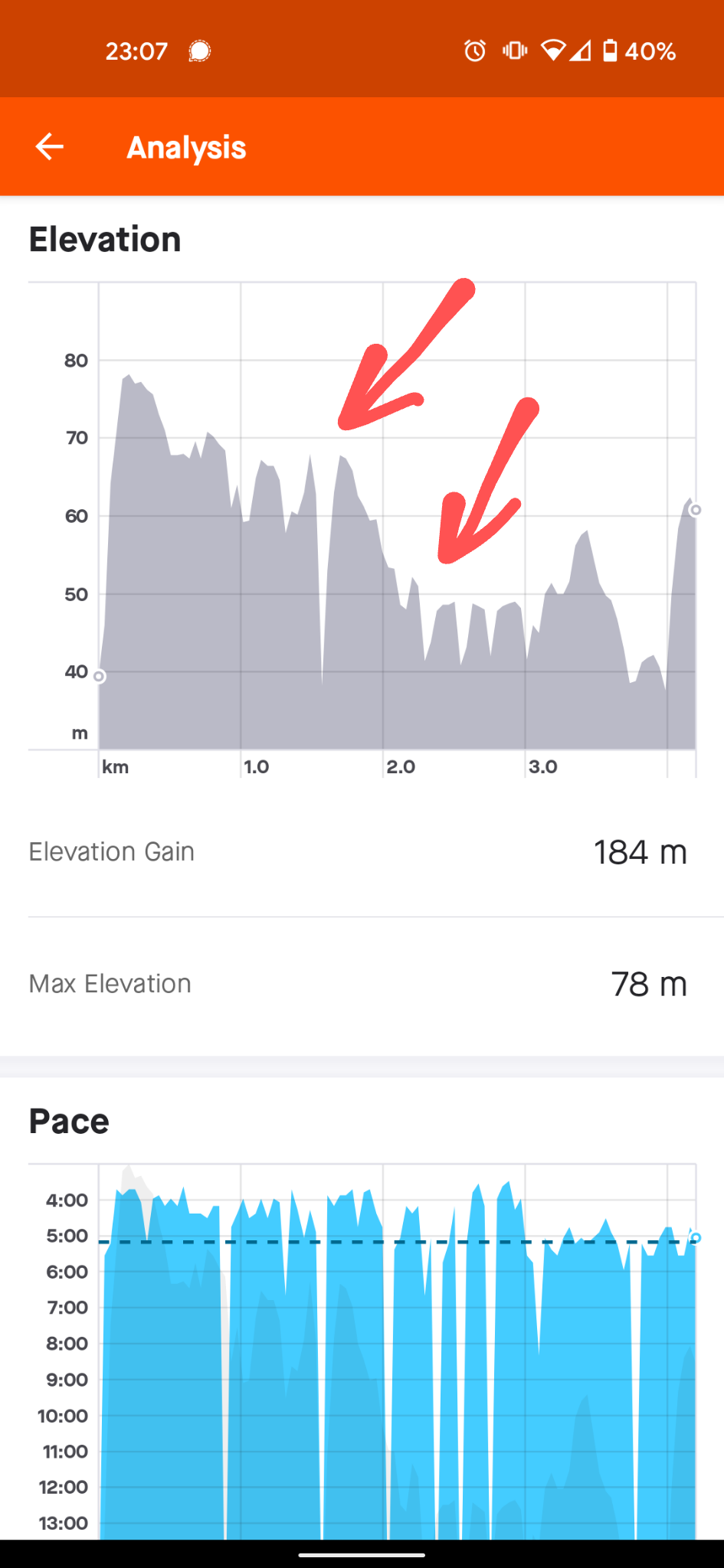
-
@eurohiker The spikes are driving up your elevation profile! If you look at my or others Strava profiles you will not see this, I would have to tell you which are S7 though. For me, I get spikes when: (i) my watch is worn where the baro holes and my skin or clothing cover the hole typically pushing air into the sensor and causing a spike ( this is easy to cause when using poles); (ii) high wind directly hitting the baro sensor ( I did about 4000m in a 2h run one time because of this). I personally have not had a clogged sensor and have not cleaned a sensor in a single watch (I have quite a few).
-
@freeheeler definitely no sweat i was at a like 1 heart zone that whole hike enjoying the views tbh
Let me know if that’s public
@Brad_Olwin baroholes would be the last thing being covered due to my boney wrists holding the sensor at least 1cm away in every wrist position. The watch design is perfect for “my” wrist and baro hole placement.
Bad focus due to light here are the pics on a 3 hole tighter setting than usual cutting off my circulation basically. (trying to cover those baroholes) Pic 2 looks close but it’s still a minimum of 5mm away it’s just back focus/lighting.
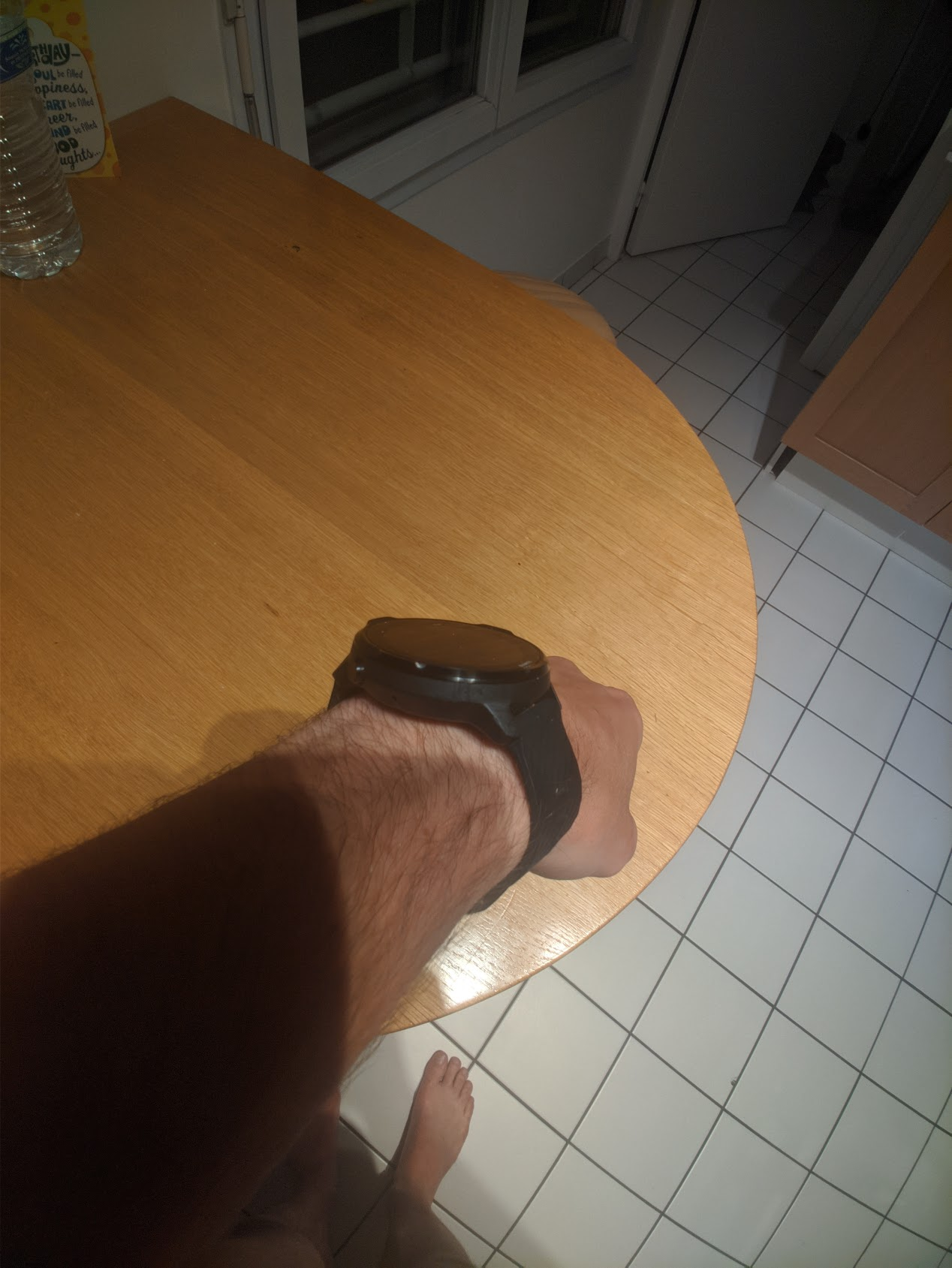
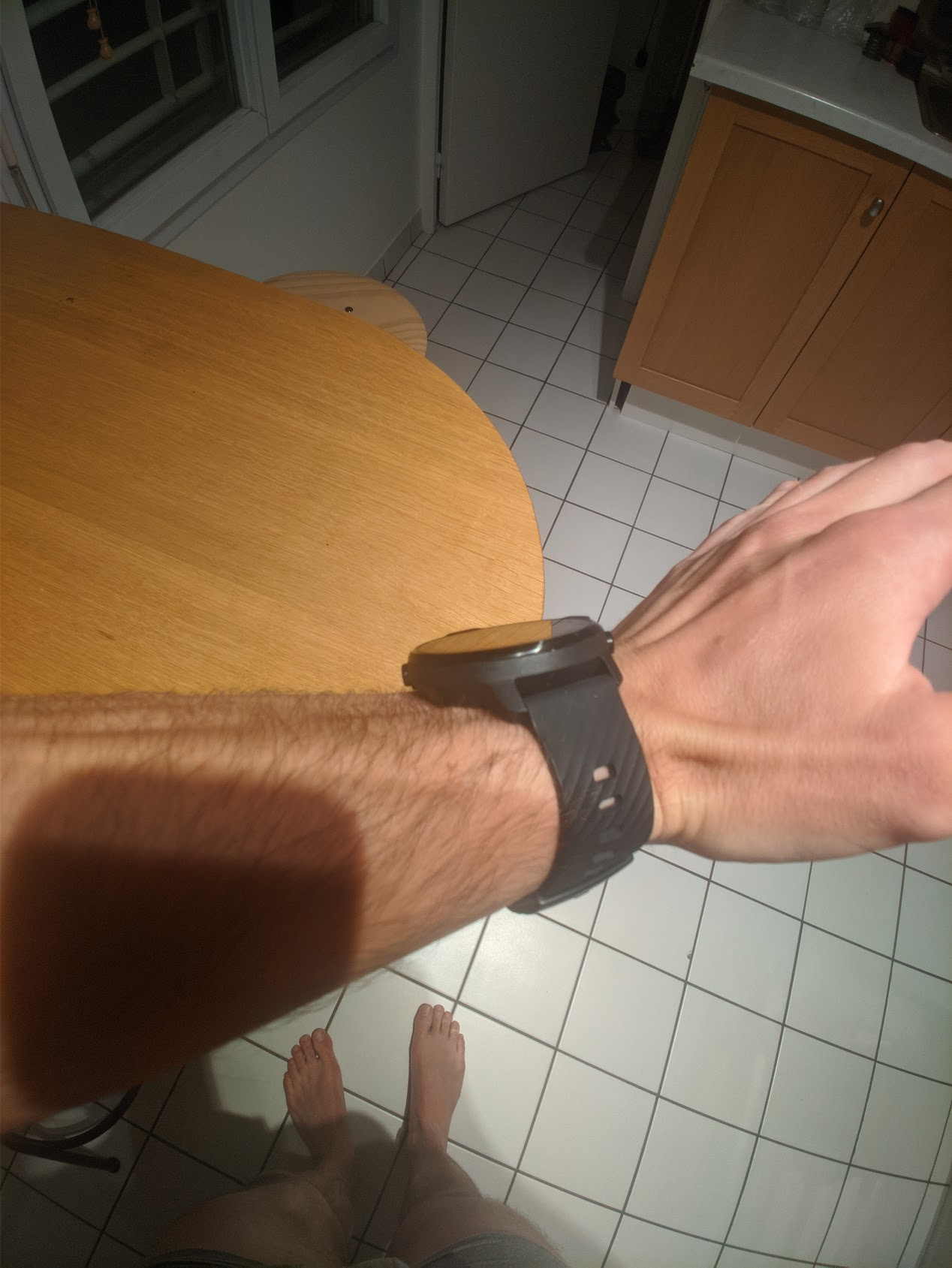
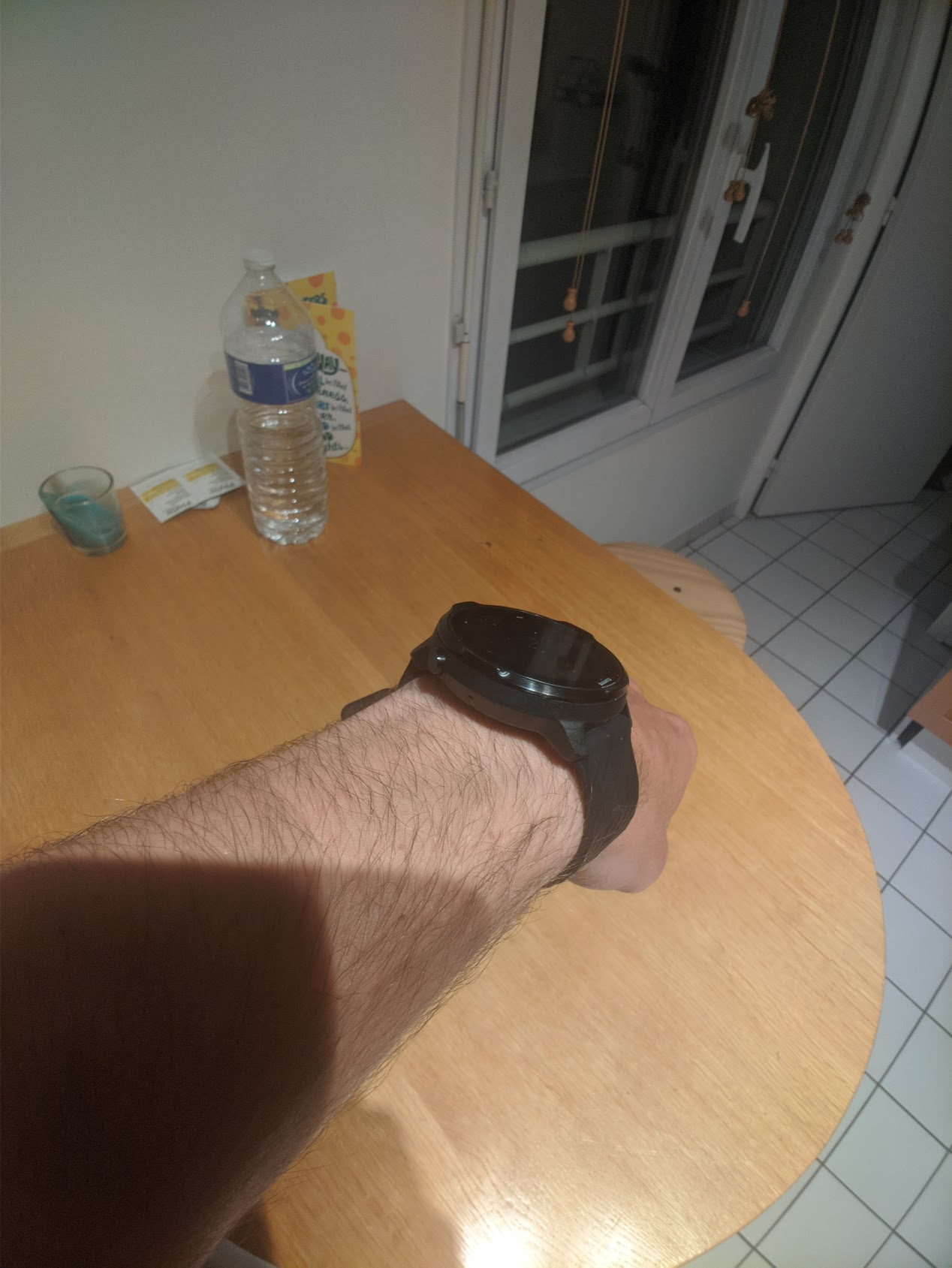
-
@eurohiker
unfortunately unaccessible either.
I bet it is as @Brad_Olwin says. This alti graph on an almost flattish run (june 2nd) follows this covered sensor pattern… and this is why I celebrate the S9P design
-
@eurohiker
I have to add something more: this steep climb in the beginning: this is not caused by a covered sensor. Normally covering increases pressure and hence alti drops until it’s venting normally again.
But it could be caused by too quick starting of an activity. I saw that on my wife’s S7, too. She went to the start screen and started the activity before the watch was ready and had the satellites locked -
@freeheeler Definitely, I agree. I try to wait for a GPS, but sometimes i forget/mid convo, or what ever sh*t happens that’s a user error. That’s not what I’m complaining about though that didn’t double the overall hike altitude or cause the GPS accuracy to be all over the place throughout the whole hike.
That peak design looks amazing but I do love the Suunto 7 design. The watch looks like it’s floating on my wrist due to the heartbeat sensor and my wrist shape/bf%. I never wore a watch in my life but I love wearing this one.
Even winter jackets tuck under until it hits the wall of the heartbeat sensor without me having to do it. At that same tightness I can run my VO2max without it floppying or even moving a mm.I know it must be annoying seeing me throughout the forums complaining but I have gone the proactive route by making an account here with my own thread explaining my issues in more detail than most people would, opened up RMA cases and got new watches, I have done everything in this thread on at least 1 of the 4 watches. I still have the same issue I started with.
Now for the first time I find out that gps and baro are independent of each other which I thought was the same so I have had 2 issues while thinking it was just 1. -
@eurohiker
I briefly scrolled thru the history of this thread… my memory is not like @Mff73
I would recommend the following:- try to wear your watch on the right hand
- let your watch soak over night in a glass of water and then clean the sensor hole with a baby toothbrush
- report your observations


-
@freeheeler I have but I will go out and get another baby brush tomorrow and I will report my results on the weekend. Although, it will be mostly flat where i’m going with no real hikes planned.
I really don’t want to wear it on my right but I will for a walk/short hike or something to test it out.
-
@eurohiker You are fine for complaining….this should not be happening and it is hard to think that 4 watches had this issue. So, let’s see if we can fix it. I wear my watch as you do and I agree it is difficult to see how you could easily cover the sensor. But the spikes show that the air going in and out of the sensor hole, or once inside the chamber is getting pressurized more than the ambient pressure. To detect a 1m change in altitude the sensor must be sensitive. I would suggest wearing the watch on the other wrist or even better, wrap the strap around your hand above your knuckles. If different positions give the same reading then I would believe you have yet another faulty watch. I do know that initially there were some limited baro sensor issues, you have seen on the forum that replaced watches function better. I have a test watch that had no issues and now a purchased watch that has no issues.
-
@freeheeler We are writing at the same time and giving the same answers:)
-
@brad_olwin


I go to sleep… now it’s your turn
-
@brad_olwin I wish i lived near mountains like you so i can do all these tests. I have to wait until the weekend for hiking since North France is pretty flat. I also don’t travel somewhere to hike every weekend so when I get to the hiking spots I don’t really try to test anything and try to take in the moment/views more than anything.
After the hike is when I look at the watch and say holy f that is off, and I don’t bother to analyze it until i’m home at the end of the weekend or a week later. -
@eurohiker Next time either wear on the other wrist or try the hand, it is not bad on the hand as the strap keeps the watch secure and it is still easy to read. Let us know what happens when you test.